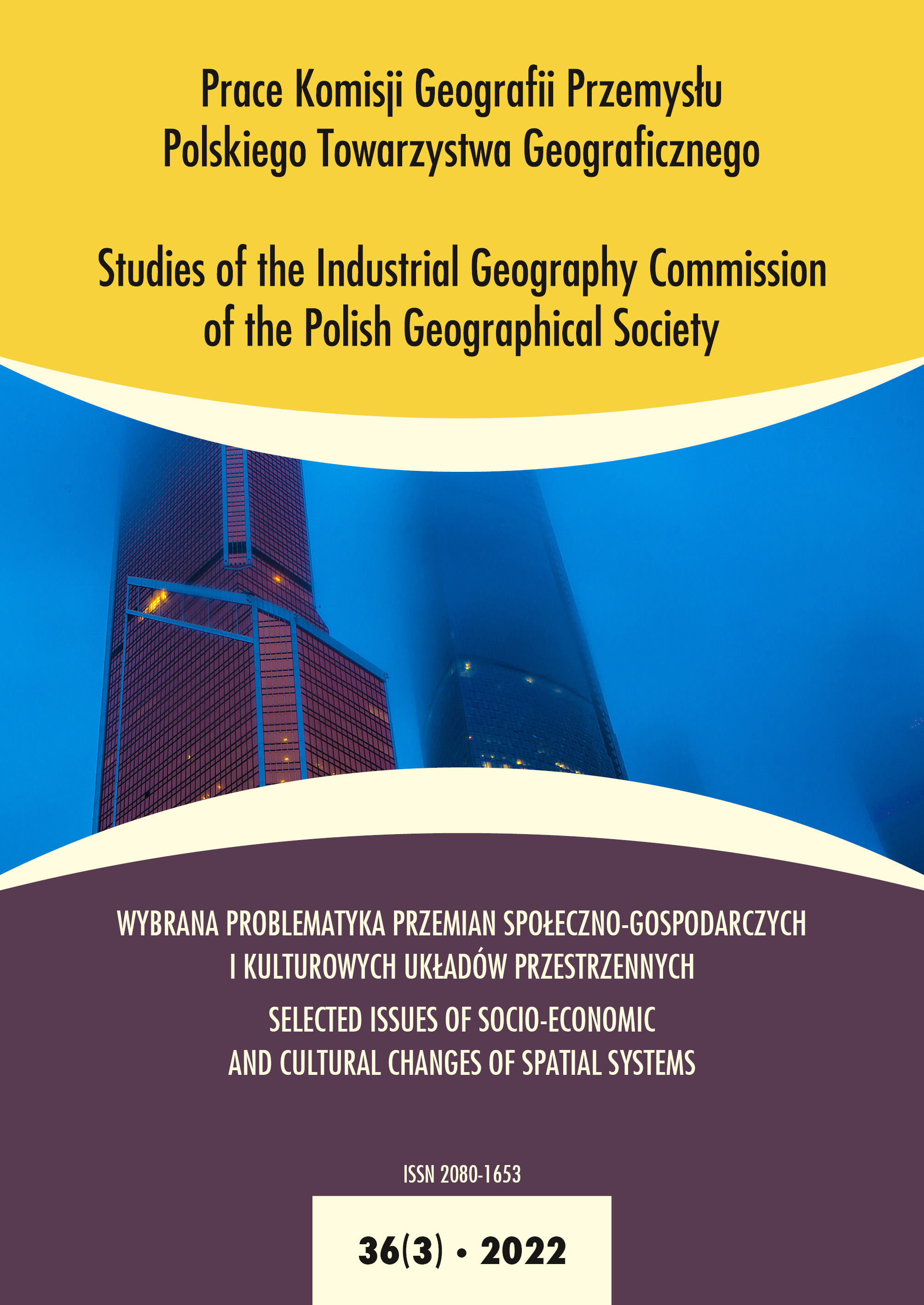Touristic cultural determinants in Canada based on the authorial route of cultural heritage in the Alberta province
DOI:
https://doi.org/10.24917/20801653.363.7Keywords:
Alberta, Canada;, cultural conditions;, cultural heritage;, tourismAbstract
Important elements of the trail include its tourist development. It is of great importance in drawing in tourists to visit a particular attraction or region. It is a special element in the development of tourism space. It increases attractiveness of the reception area, similarly to catering or accommodation facilities. The created network of the tourist routes is considered as internal accessibility of the region. The trail that is well-organised and adapted to the conditions, allows for a wide selection of active forms of spending free time. The work focuses on the development of the cultural heritage trail in the province of Alberta (Canada). Based on the literature analysis, the trail was defined as a tourist attraction in itself. From the information received it was found that the tourist route is an inseparable part of the tourist product. An important element of the tourist trail is tourism development. The text emphasizes cultural aspect of the original route. The protected areas and the cultural heritage of the Indians have been characterised in particular. As part of the original route, the following were characterised: accommodation, catering, accompanying facilities and threats that may occur during the journey. Based on a review of the literature and the author’s route, the relation between local heritage and cultural tourism was inferred.
Downloads
Metrics
References
Cabaj, W., Kruczek, Z. (2009). Podstawy geografii turystycznej. Kraków: Proksenia, 215.
Gaworecki, W. (2003). Turystyka. Warszawa: Polskie Wydawnictwo Ekonomiczne.
Jarochowska, M.A. (1961). Kanada, kraj i ludzie. Warszawa: Wydawnictwo Naukowe PWN.
Jędrysiak, T. (2008). Turystyka kulturowa. Warszawa: Polskie Wydawnictwo Ekonomiczne.
Kmita, J., Banaszak, G. (1994). Społeczno-regulacyjna koncepcja kultury. Warszawa: Wydawnictwo Instytut Kultury.
Kruczek, Z. (2005). Polska. Geografia atrakcji turystycznych. Kraków: Wydawnictwo Proksenia.
Leung, H.H. (2013). Canadian Multiculturalism in the 21st Century: Emerging Challenges and Debates. Canadian Ethnic Studies, 43(3), 19–33.
Liszewski, S. (2009). Przestrzeń turystyczna Polski. Koncepcja regionalizacji turystycznej Polski. W: Współczesne problemy przemian strukturalnych przestrzeni geograficznych. Słupsk: Wydawnictwo Naukowe Akademii Morskiej.
Liszewski, S. (1995). Przestrzeń turystyczna. Turyzm, 5(2), 87–103.
MacInnes, T.R.L. (1946). History of Indian Administration in Canada. The Canadian Journal of Economics and Political Science, 12(3), 387–394.
Mikos von Rohrscheidt, A. (2008). Turystyka Kulturowa – wokół definicji. Turystyka Kulturowa, 1, 4–21.
Mikos von Rohrscheidt, A. (2008). Turystyka kulturowa. Fenomen, potencjał, perspektywy. Turystyka Kulturowa, 2, 32–35.
Mikos von Rohrscheidt, A. (2016). Przyroda w turystyce kulturowej. Programy, oferty, zagospodarowanie walorów i obszarów. Turystyka Kulturowa, 1, 6–46.
Nowakowska, J. (2010). Kanada – Zielony przewodnik. Kraków: Wydawnictwo Bezdroża.
Miles, R. (ed.). (2006). Canada. DK Eyewitness Travel. London: DK.
Official Alberta Travel Planner. (2014).
Rusinowa, I. (2001). Indianie Kanadyjscy w XX wieku. Dzieje Najnowsze, 33(1), 193–212.
Słabczyński, T. (1990). Kanada. Mały przewodnik turystyczny. Warszawa: Krajowa Agencja Wydawnicza.
Stasiak, A. (2006). Produkt turystyczny – szlak. Turystyka i Hotelarstwo, 10, 9–40.
The ICOMOS charter on Cultural Routes, Elaborated and revised by the International Scientific Committee on Cultural Routes (CIIC) of ICOMOS, version approved in Pretoria, October 2007, ratified in Quebeck, October 2008, www.icomos-ciic.org/ciic/Charter_Cultural_Routes.pdf (Accessed on: 28.03.2022).
Włodarczyk, B. (2009). Przestrzeń turystyczna – istota, koncepcje, determinanty rozwoju, Łódź: Wydawnictwo Uniwersytetu Łódzkiego.
Your Official Guide to Camping in Alberta. (2016). Alberta: Alberta Hotel & Lodging Association.
Ziółkowska-Weiss, K., (2020). Krakowski Kazimierz w kontekście turystyki sentymentalnej Żydów. Turystyka Kulturowa, 4(115), 86–104.
Downloads
Published
How to Cite
Issue
Section
License
Copyright (c) 2022 Studies of the Industrial Geography Commission of the Polish Geographical Society

This work is licensed under a Creative Commons Attribution-NoDerivatives 4.0 International License.
Articles are published under the terms of the Creative Commons License (CC BY-ND 4.0; Attribution– NoDerivs).

